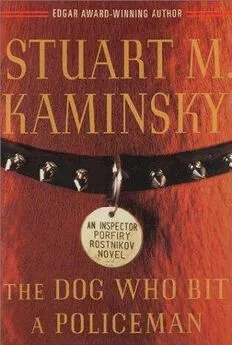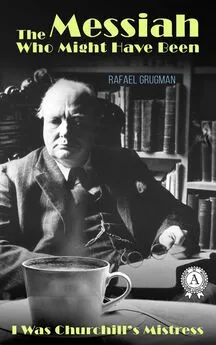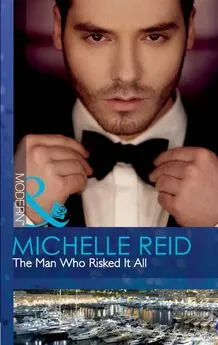Stuart Kaminsky - The Dog Who Bit a Policeman
- Название:The Dog Who Bit a Policeman
- Автор:
- Жанр:
- Издательство:неизвестно
- Год:неизвестен
- ISBN:нет данных
- Рейтинг:
- Избранное:Добавить в избранное
-
Отзывы:
-
Ваша оценка:
Stuart Kaminsky - The Dog Who Bit a Policeman краткое содержание
The Dog Who Bit a Policeman - читать онлайн бесплатно полную версию (весь текст целиком)
Интервал:
Закладка:
“I wasn’t afraid,” said the boy.
“Sometimes it is good to be afraid. It makes you careful.”
The boy shrugged again.
“What else did you see?”
“The man in the front seat, the passenger seat. When the car slowed down to kill the three men, both the back and front windows came down. The man in the backseat fired. The old man in the front seat watched.”
“What did these men look like?”
“The shooter wasn’t young. The old man had one of those black things over one eye.”
“A patch?”
“If that’s what you call it.”
Casmir Chenko.
“Why aren’t you in school?” asked Rostnikov.
“I don’t like school. I go sometimes. But I don’t like school.”
“If you want to be a policeman, you have to go to school,” said Rostnikov. “If you go to school, come and see me when you are twenty years old. I’ll probably be retired, but I’ll do what I can for you.”
“Who are you?” the boy asked suspiciously.
“Chief Inspector Porfiry Petrovich Rostnikov of the Office of Special Investigation. Are you impressed?”
“Are you going to want me to sign a statement, point to the old man with the patch in a courtroom, something?” the boy said, not answering the question.
“I don’t think so,” said Rostnikov. “I would like to see you reach the age of twenty so you can become a policeman. Here.”
Rostnikov shifted his weight, pulled out a crumpled card from his wallet, and handed it to the boy. The printing job was crude but it told the story, Rostnikov’s name and title, the name of the Office of Special Investigation, and the phone number and address of Petrovka. “Now go give your name and address to Inspector Karpo.”
“Is he dying?” asked the boy. “The other policeman?”
“No,” said Rostnikov. “His aspect is a combination of heredity, a lack of humor, tragedy, and careful, if unconscious, cultivation.”
The boy understood nothing of the explanation.
Rostnikov had little hope that the boy would become a diligent scholar and appear on his doorstep sometime in the future with the crumpled card in his hand. But if one never tried, one never succeeded. He checked his watch. He was late. He was too late to take the metro and he had no car.
Getting up was a monumental chore, but he managed without slipping. Rostnikov thought he was getting more friendly with his new leg with each day. This was a leg that reminded him of Karpo: solid, emotionless, efficient, and reliable. The withered real leg that was now gone had been more of a Sasha Tkach leg, feeling put upon, emotional, needing help more than helping.
That was an unfair thought. Sasha was a good policeman, a troubled young man but a good policeman.
When the two witnesses were gone. Emil Karpo approached Rostnikov, who was walking out of the market past the stalls.
“I will meet you back at Petrovka,” said Rostnikov. “I want Casmir Chenko in my office in two hours. You know how to find him.
If he is in hiding, locate him. Get whatever help you need from Opatchoy in MVD Uniform Division. He owes me a favor. Be careful. Take whatever men you need.”
“He will be in your office,” Karpo said.
Back on the street, with the sun making a futile effort to come out from behind very black clouds, Rostnikov took one last look at the corpses and moved down the street in search of a cab. In less than a block, he had found one, even though they were not very close to the tourist hotels. Cabs were plentiful in Moscow.
This one sported a dour driver with the weatherworn, pinkish face of an alcoholic, a face very familiar in Moscow.
Rostnikov climbed in awkwardly, closed the door, and told the driver where he wanted to go. “I am a police inspector,” Rostnikov said as the man shifted into second. “You will charge a fair amount or I will declare this vehicle commandeered for police business, in which case you will be paid nothing. You understand?”
The driver nodded.
“Are you married?” asked Rostnikov.
The driver nodded.
“Children?”
“Two,” said the driver in the most gravelly voice Rostnikov had ever heard. It was even more rough than that of his sergeant when Rostnikov was a boy soldier.
The driver waited for more questions. None came.
Fifteen minutes later the cab pulled up in front of the hospital.
“What do I owe?” asked Rostnikov.
“Whatever you want to pay,” said the driver.
“I want to pay nothing,” said Rostnikov. “But you deserve payment for your work.” Rostnikov gave the man more than the trip would normally cost.
“Thanks,” said the driver.
“May your family be healthy,” said Rostnikov.
“May my family stop complaining,” said the driver.
Rostnikov got out of the cab and began the short walk to the door of the small hospital. Sarah’s surgery was one hour away.
Chapter Thirteen
Iosef stood before the desk of Director Yaklovev, doing his best to hide his anger. It took all of the skills he had learned in the theater. He should have discussed this with his father before he came to see the director, but he was fairly certain what Porfiry Petrovich would have advised.
Iosef didn’t want common sense and he didn’t want caution. He wanted to express his ire even if it cost him his job. Since he preferred not to lose his job and he hoped for some satisfaction, Iosef decided to play the role of an unflappable diplomat, unsurprised by events, only slightly disappointed by the actions of his superior.
It was what he decided, but Iosef was certain that his indignation would overcome him. There really was nothing to gain here and much to lose.
Yaklovev sat behind his desk, looking at the transcript of the confession of Oleg Kisolev and the statements of Yulia Yalutshkin and Yevgeny Pleshkov. It was Iosef ’s copy, the copy Pankov had handed to the young inspector less than fifteen minutes earlier.
“Yes, I have heard the tape,” said the Yak. “I have read the transcript.”
“And?” asked Iosef.
“Too many typing errors, but I will edit them and Pankov will produce another version,” said the Yak.
“This,” said Iosef, pointing at the transcription, “is not what happened. Oleg Kisolev has no money. The German wouldn’t get anything by trying to blackmail him. And how would he know that Kisolev was homosexual? If Oleg told Yulia to take Pleshkov away from the hotel after he killed the German, there is no chance she would do it. She would never be ordered about by Oleg Kisolev or anyone else. You saw that. And Kisolev is incapable of participating in such a sequence of events-killing the German, trying to destroy the body, ordering Pleshkov to leave the scene. In this version, Pleshkov and the woman did nothing, and Kisolev acted in self-defense and to protect his friend. And none of this is what they told me and Zelach. It is a different story.”
“Are you finished?” asked the Yak calmly.
“I don’t know,” Iosef said.
“You are finished,” said the Yak. “And if you pursue this case any further, your career will be finished before it begins. You are a very good investigator. You could be, with time, as good as your father, possibly a chief inspector. I have great respect for Porfiry Petrovich’s discretion and ability. He could not be pleased if I were forced to dismiss you from Special Investigation. Pause now and think. Think and discuss this with your father.”
Suddenly, Iosef understood. It should have been clear and would have come to him had he not been enraged and stormed into the Yak’s office. Yaklovev had not been taken in by a flimsy story.
The director of Special Investigation had made a deal, had gambled on the possibility of Pleshkov being in an even greater position of power in Russia. The Yak had given the politician freedom from jail in exchange for future considerations relating to the Yak’s ambition.
“I believe the statements,” said the Yak. “I suggest you do the same. The German could well have spied on Kisolev and discovered that he was a homosexual. The German could have assumed that Kisolev could borrow money from his friend Pleshkov. And our soccer coach, in a state of panic, showed an aggressive side of his nature that is normally hidden. His very future and present were at stake. The case is closed. You understand?”
“Yes,” said Iosef, holding out his hand.
The Yak gave him the transcript. “I have a new assignment for you,” he said. “Someone broke into the office of the United States Peace Corps. He or they took thirty thousand dollars and stayed to cook a ham, which they ate. There appear to be no clues and the MVD and State Security want no part of it. They see no gain in catching a fool, and they are sure of ridicule if they fail. I, on the other hand, have an instinct for such crimes. Chief Inspector Rostnikov will discuss it with you after I meet with him.”
“I’m to catch a ham thief?” said Iosef.
“Who also took thirty thousand dollars,” said the Yak.
“I am being punished,” said Iosef.
“No, you are being given an assignment.”
“I would like to offer. .” Iosef began.
“No,” said the Yak, still not looking up. “I want you to leave now, talk to the chief inspector, and then consider the offer you were about to make. Iosef Rostnikov, I have learned that our work follows a simple principle. We take one step forward and one step back. We are always in the same place we started. Our hope for success is to plan carefully, taking what we might be able to use, as we step forward and back in a simple two-step.”
Iosef nodded and left the office.
The Yak opened his desk drawer and removed the tape containing the voices of Pleshkov and the others telling what really had happened. He sat for the next hour making two copies, using the two tape recorders he kept in his desk. The copies would not be perfect but they would be clear enough. He would keep one copy in his desk and place the others in separate, safe places. While his office was reasonably secure, the Yak knew that someone in Petrovka could be bribed to break in when he was away and remove the tape from the desk drawer. The Yak almost welcomed the possibility. He began to imagine the conversation that would take place with Pleshkov. The Yak would produce another copy of the tape, and Pleshkov would be in a very awkward position from which the Yak would help him to escape. . at a price. But Pleshkov was probably too intelligent. He would realize that there would be other copies. He would not make that mistake. Still, he had been witness to other, even worse mistakes from people supposed to be intelligent and capable.
While the copies were being made, the Yak contemplated the future of Iosef Rostnikov. The young man would either be made aware of reality by his father or the Yak would have to find a way to transfer Iosef to another department.
Director Yaklovev had great confidence in Porfiry Petrovich’s powers of persuasion and his understanding of the need for compromise.
They had not yet cut Sarah’s hair. She lay in a bed in a prepara-tion room, waiting. There were no other patients in the room. Rostnikov sat at his wife’s bedside, holding her hand.
“What have they done so far?” asked Rostnikov.
“Tests. They put me on the machine. The same one as before, the one with the lights that hums. Leon and the surgeon are looking at the results.”
“I brought you something,” he said, taking out the triangular pastry with his free hand. “You can have it when you wake up after the surgery.”
“It looks good,” she said. “Hold on to it for me, Porfiry Petrovich.”
Читать дальшеИнтервал:
Закладка:










